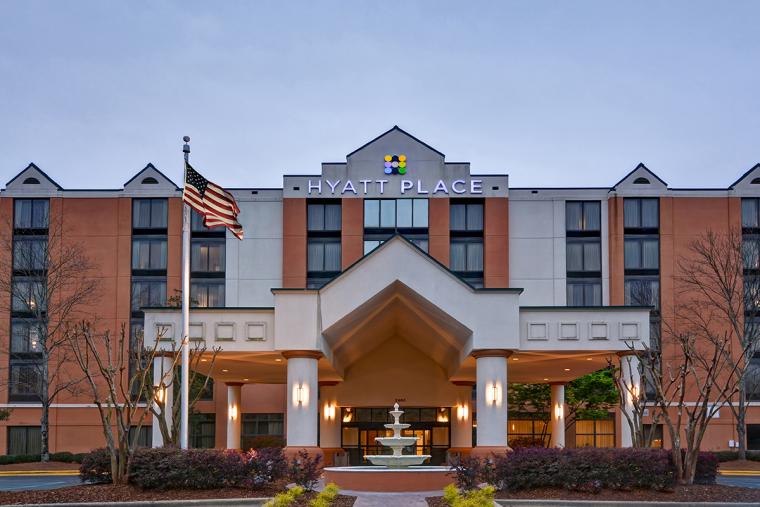

These days, with more in event owners’ scope of responsibility, it has become increasingly important to outsource those responsibilities. However, outsourcing means finding a responsible partner and being comfortable offloading some of those tasks that formerly fell to (already overworked) staff members.
Working with housing bureaus has allowed event owners to move the responsibility to another entity, and to feel comfortable about doing so. By working with a housing bureau, event owners can eliminate the need to work on hotel negotiations, reservations and inventory management. They’re also no longer responsible for and troubleshooting housing issues when they arise.
Making an arrangement with a housing service means that individuals or teams can book rooms over the phone or online through a custom booking link created just for that event. In addition, teams have the option of putting a room block on hold so they can all stay together at the same property.
In essence, by using a rooming service, event owners and rights holders remove a lot of headaches associated with negotiating with hotels. After all, many housing bureau professionals – at least those who work with our company – have worked in the hotel industry previously. They already have a knowledge of who to talk to and what needs to be covered when negotiating with hotels.
In addition, a housing bureau has a knowledge of each event’s host city and can head off potential problems. As an example, if you’re not completely familiar with a city, many hotels can look good on paper (or on their website) – but some might not be great choices for your group. Maybe the neighborhood isn’t as safe or maybe the hotel is harder to access because it’s out-of-the-way or because there is a lot of construction in the area. A housing bureau will find out all these things in advance – rather than you finding out about them upon arrival (and hearing about them over and over from your attendees).

When it comes to hotels and making arrangements, you get out of it what you put into it. If you’re handing off the work to someone in your group who is only working on it part-time, in addition to having other duties, you have essentially created a part-time experience for your registrants.
If you’re working with a housing bureau, you know you’re bestowing those responsibilities upon someone who knows what they’re doing and who does it all day, every day. And after all, if housing is what a company does full-time, they want to do it better than everyone else. In this regard, working with a housing partner can help the overall success of your event.
Another advantage of housing bureaus is their ability help enforce a stay-to-play policy more easily and to negotiate the concessions from the participating stay-to-play hotels. This takes the pressure off you as a tournament director and allows you to concentrate on what you do best. It also means that the housing company is responsible for receiving all calls, responding to them and working out any problems with lodging that may pop up for attendees.
The housing bureau can also provide you with real time reporting information at each hotel so that you can check on your room pickup, revenue or comp rooms.
Another benefit is to athletes and attendees. A housing bureau will set up a link for registrants’ use on your tournament website so that registrants (or parents) can select hotels and book rooms rather than them calling the hotels directly. They don’t have to worry about providing the hotel with a special code when they book their room in order to get the tournament room rate – and you don’t have to worry they’ll forget to use that code or something will happen and you won’t get hotel credit for the room that was booked.
Another group that greatly benefits from using a housing partner is the destination management organization (DMO), such as the sports commission or CVB. The housing bureau can provide real time reporting numbers that will be used as part of your event’s overall economic impact. Having verifiable housing figures is an essential part of your history as an event planner. If the event needs to move to a new market, those figures will be a huge selling point for you.
Moving to a housing bureau is sometimes a leap of faith for event owners and rights holders. After all, they’re entrusting another group to take reservations and to handle personal financial records and transactions. And let’s face it, we’ve all seen plenty of bad news about hacks, leaks and fraud.
If you’re looking at housing bureaus and this is a concern, make sure to ask about PCI compliance. The Payment Card Industry Data Security Standard is an information security standard for organizations that handle branded credit cards. The PCI Standard is mandated by the card brands and administered by the Payment Card Industry Security Standards Council.
Overall, industry trends show us that housing bureaus are becoming the standard, rather than the exception, when managing accommodations for tournaments. A few things to keep in mind when you’re in the planning stages:
Give advance notice: A good general rule of thumb is to contact your housing service and have rooms blocked a year or more in advance. Most sports events have their event host cities selected years in advance, but we know people are not likely to make their reservations until the event is closer.
Provide vital statistics: Make sure your housing service knows all the details of your event: the move-in and move-out dates, the numbers of athletes, how many teams, whether athletes will be traveling with families, whether rooms will be needed for staff, officials and others, whether there will be an expo that will bring in vendors (and will also need rooms), etc. Any specific needs should also be mentioned, such as for an event with athletes who may have physical challenges, etc.
Your housing service does not need to be located in your host city. Most of the housing companies out there are working with events all over the U.S. and Canada. They’ll likely know representatives from national hotel chains and can leverage those contacts to get the best rooming options for your group in dependable, recognizable properties.
Ask the right questions: If someone has a problem or a question regarding their room or their reservation, where do they call? What happens if they need to change or cancel their reservations? What are the customer service hours? What happens if the person calling is on-site at the tournament but it’s after regular business hours?
Get references: Ask your colleagues about services they have used. Ask the sports commission if they have recommendations. And if you’re planning to work with a specific service, you can always Google their reviews and/or check any references they have listed.
Once you’ve found a good housing service to be your partner in this endeavor, it’s time to get the word out to your athletes. Again, the more advance notice you give, the better. Remind them that while you have competitive room rates at good properties, their early registration is the best way of guaranteeing they can stay where they want, at the rate they want, with the amenities they want. SDM

